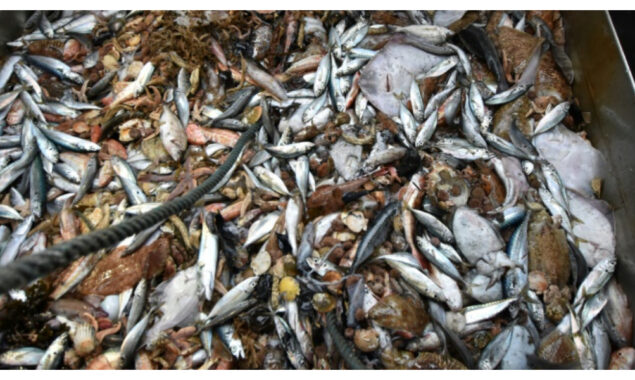
Marathon week of WTO talks aim to net fisheries deal
Members of the World Trade Organization began a week of “intense consultations” on Monday in the hopes of reaching a long-awaited agreement to remove subsidies that reward overfishing in time for next month’s ministerial conference.
“The negotiations are at a very critical juncture,” WTO chief Ngozi Okonjo-Iweala stressed in a statement, after nearly 200 environmental groups handed her a letter Monday demanding rapid global action towards eliminating overfishing.
WTO members have been debating the necessity for a settlement barring subsidies that contribute to illicit and uncontrolled fishing, as well as overfishing, which concerns the sustainability of fish populations, for the past two decades.
While fishing should in theory be held in check by the environment, with low fish stocks pushing up costs, subsidies can keep unprofitable fleets at sea.
Global fisheries subsidies are estimated at between $14 billion and $54 billion a year, according to the WTO.
It is widely agreed that action is needed to protect a crucial resource that millions of people depend on for their livelihoods.
But more than 20 years of negotiations have stumbled over a range of issues, and members failed to meet the latest UN deadline to reach an agreement by December 2020.
Momentum had seemed to be building towards a deal in time for the 12th WTO ministerial conference (MC12), which had been due to be held last November, before the emergence of the Omicron variant of Covid-19 forced its postponement.
The meeting is now due to kick off in Geneva on June 12.
“Now is the time to end decades of discussions and conclude the WTO fisheries subsidies negotiations, so that the results can be adopted by ministers,” Colombian ambassador Santiago Wills, who chairs the WTO fisheries subsidies negotiations, said last week.
He said this entire week had been set aside for “intensive discussions aimed at closing the remaining issues in the draft agreement that was sent to ministers in November last year.”
The WTO and Okonjo-Iweala have made netting a fisheries agreement a top priority, but numerous sticking points remain.
Wills said outstanding issues include “the balance and ambition related to curbing subsidies that contribute to overcapacity and overfishing, including special and differential treatment.”
The UN’s demand that developing countries and the poorest nations receive so-called special and differential treatment, or SDT, has long been a stumbling block in efforts to secure a deal.
While special treatment for the poorest countries is widely accepted, demands from some self-identified developing countries to be exempt from subsidy constraints has proved difficult to swallow.
Many of the major fishing nations are considered developing countries at the WTO, including China, which has one of the world’s biggest fishing fleets.
Other issues still being debated, according to Wills, are “transparency requirements for forced labour, and how to ensure that WTO dispute settlement has no effect on overlapping territorial claims.”
In 2017, the United Nations’ Food and Agriculture Organization estimated that more than one third of global fish stocks were overfished.
“A multilateral agreement at MC12 is crucial for the future of our oceans,” the European Union’s mission in Geneva said in a tweet.
“It is now or never.”
On Twitter, British Ambassador Simon Manley expressed his support for attempts to “bring the 20-year-old fisheries subsidy negotiations to a successful conclusion.”
“Our oceans can wait no longer.”
Read More News On
Catch all the International News, Breaking News Event and Latest News Updates on The BOL News
Download The BOL News App to get the Daily News Update & Follow us on Google News.




